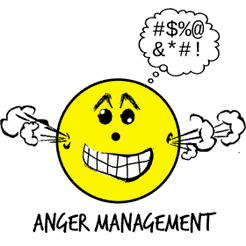
Uncontrolled anger restricts personal growth and well-being, casting a shadow on various aspects of life. This article delves into the repercussions of unmanaged anger, spanning impaired emotional well-being, damaged relationships, communication difficulties, and career limitations. By comprehending its impact, we underscore the significance of anger management and adopting healthier coping strategies. Embrace a transformative journey and liberate yourself from the restraints of anger to attain a balanced and fulfilling life.
Impaired Emotional Well-being: Unbridled anger elevates stress, anxiety, and irritability, diminishing overall well-being and happiness. It may even contribute to the development or exacerbation of mental health conditions like depression and anxiety disorders.
Damaged Relationships: Anger wreaks havoc on interpersonal connections, fostering hostility and eroding trust and intimacy. Consistent outbursts alienate loved ones, resulting in strained relationships and limited social support networks.
Impaired Communication: Anger hampers effective communication, hindering the ability to express oneself calmly and assertively. Instead, individuals may resort to aggressive or passive-aggressive communication styles, obstructing conflict resolution and hindering the formation of healthy relationships.
Career Limitations: Unmanaged anger jeopardizes professional endeavors. Frequent displays of anger in the workplace tarnish one’s reputation, disrupt teamwork and collaboration, and impede career advancement opportunities. The consequences may extend to disciplinary actions or even job loss.
Health Consequences: Chronic anger exacts a toll on physical well-being. The persistent activation of the body’s stress response heightens the risk of health issues, including high blood pressure, heart problems, weakened immune system, and chronic conditions like cardiovascular disease.
By acknowledging the impact of anger, one can embark on a transformative path towards anger management, adopting healthier coping mechanisms. Free yourself from anger’s grasp and embrace a life enriched with emotional well-being, harmonious relationships, effective communication, professional growth, and improved overall health.


